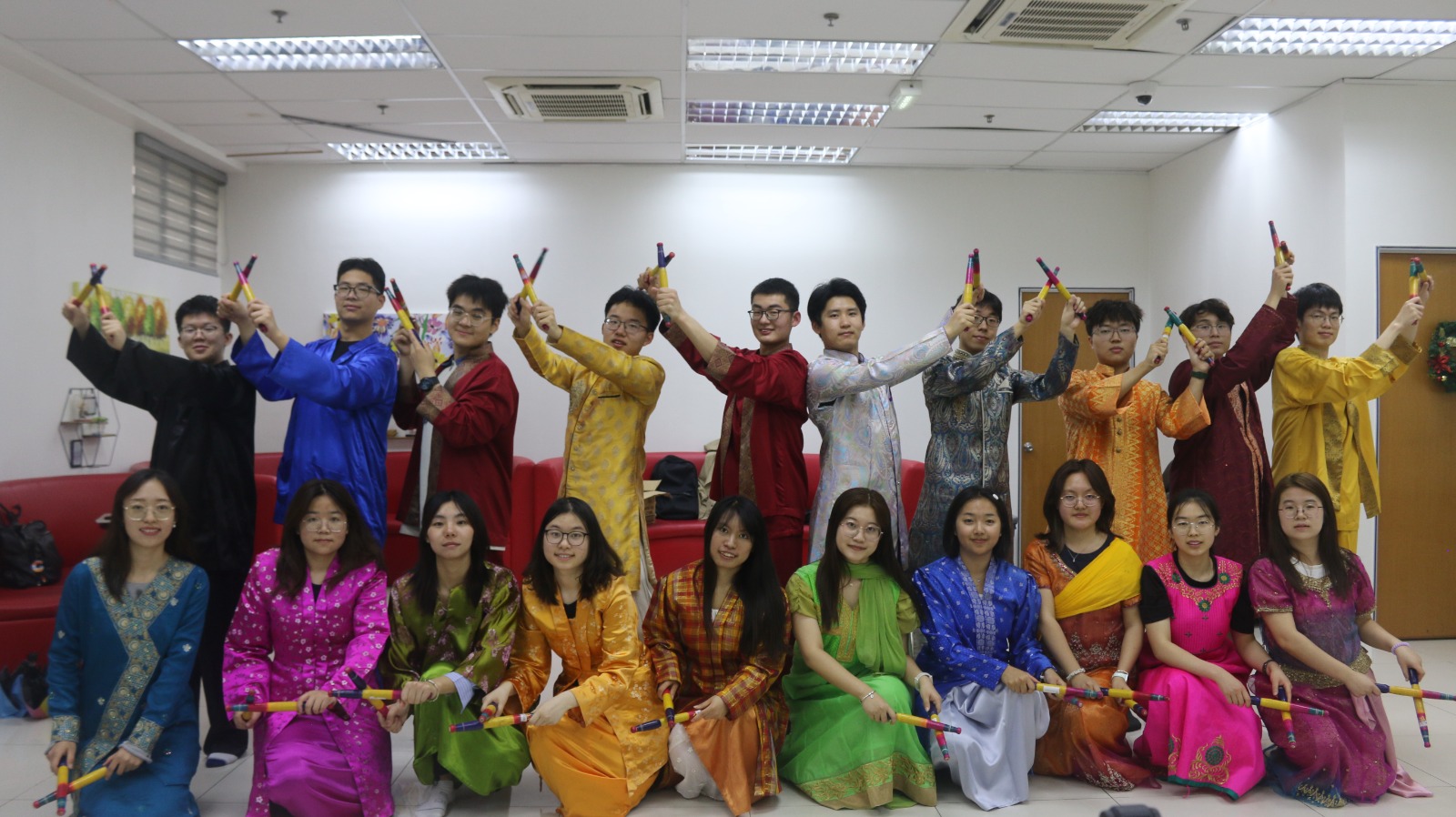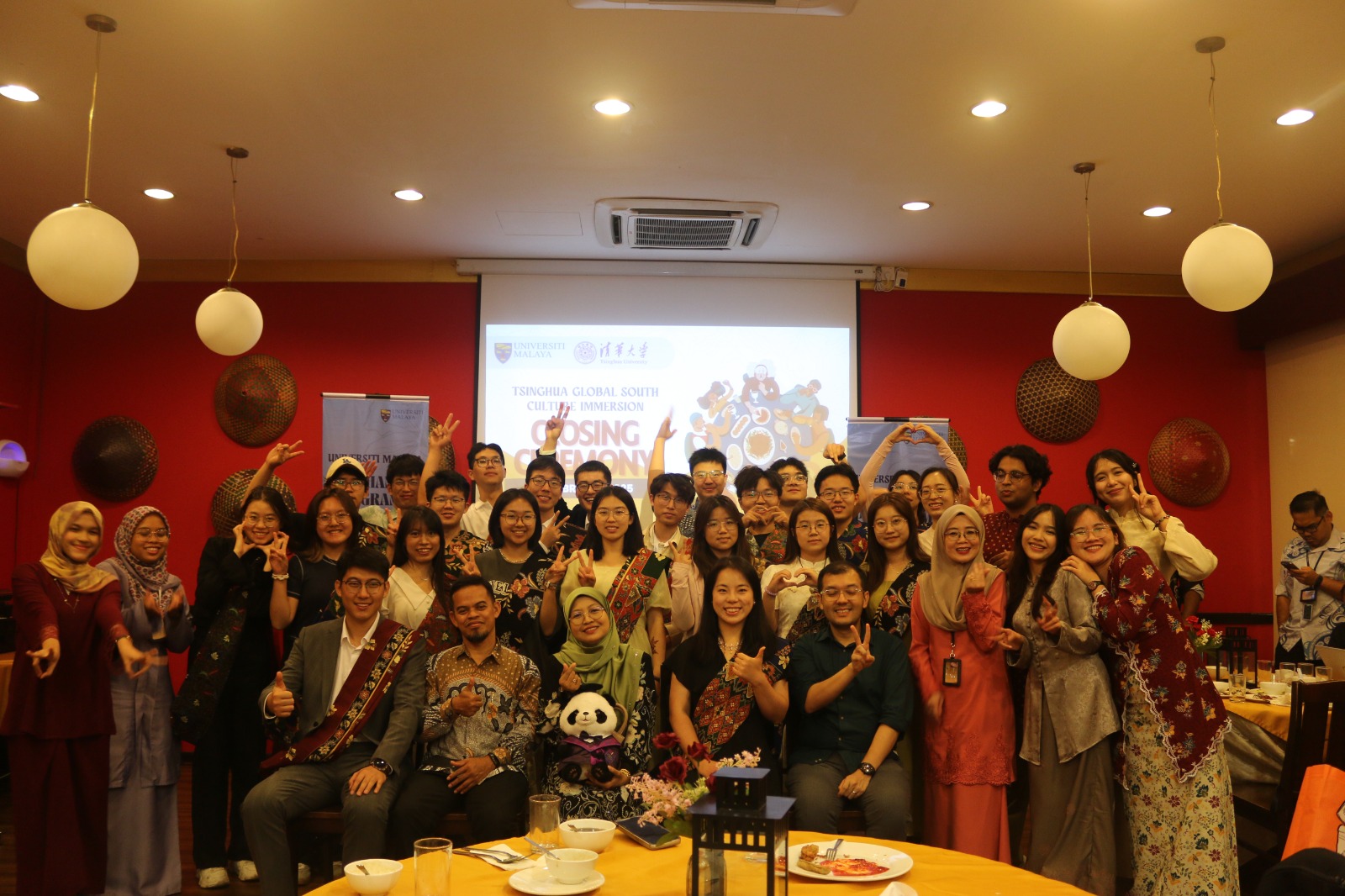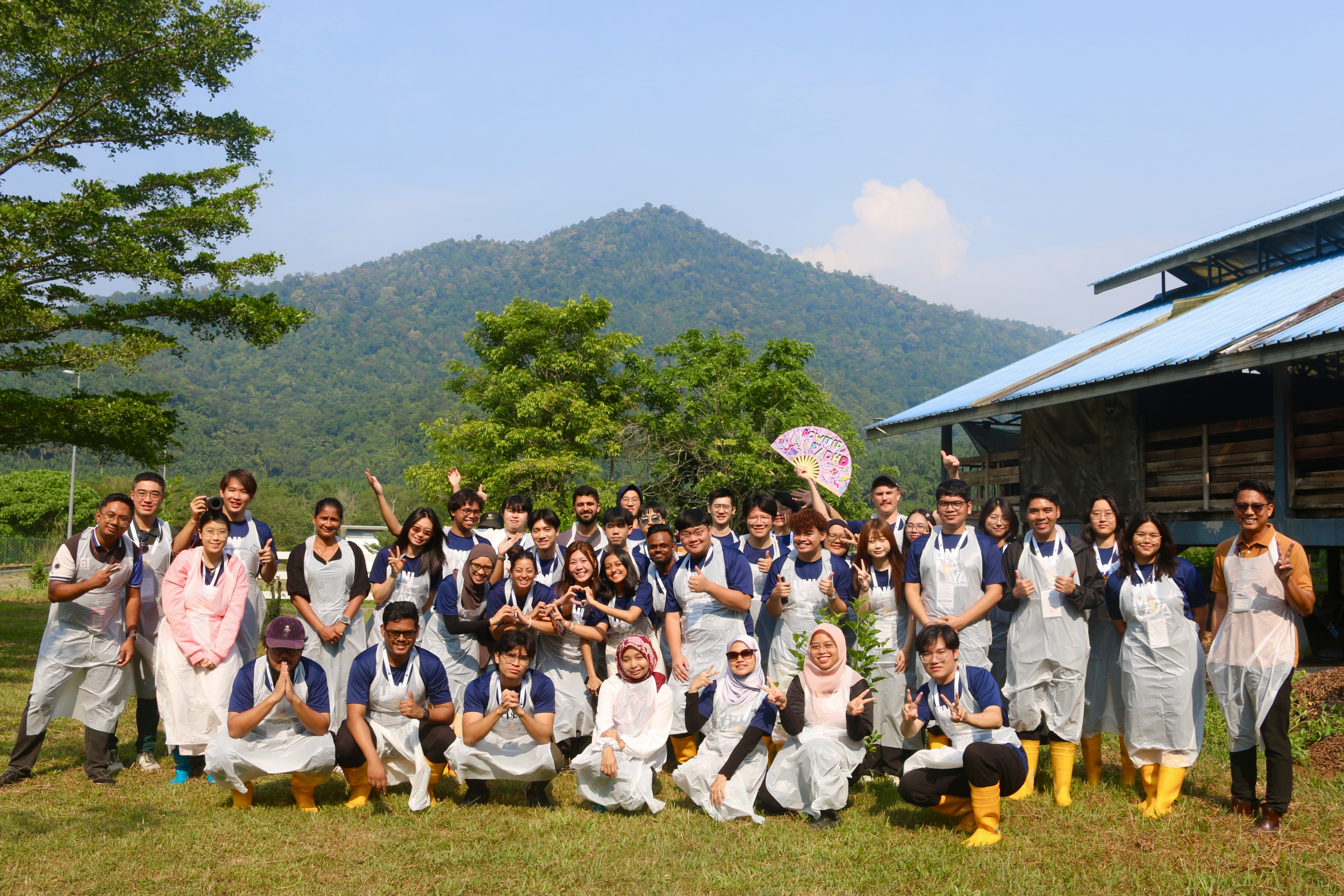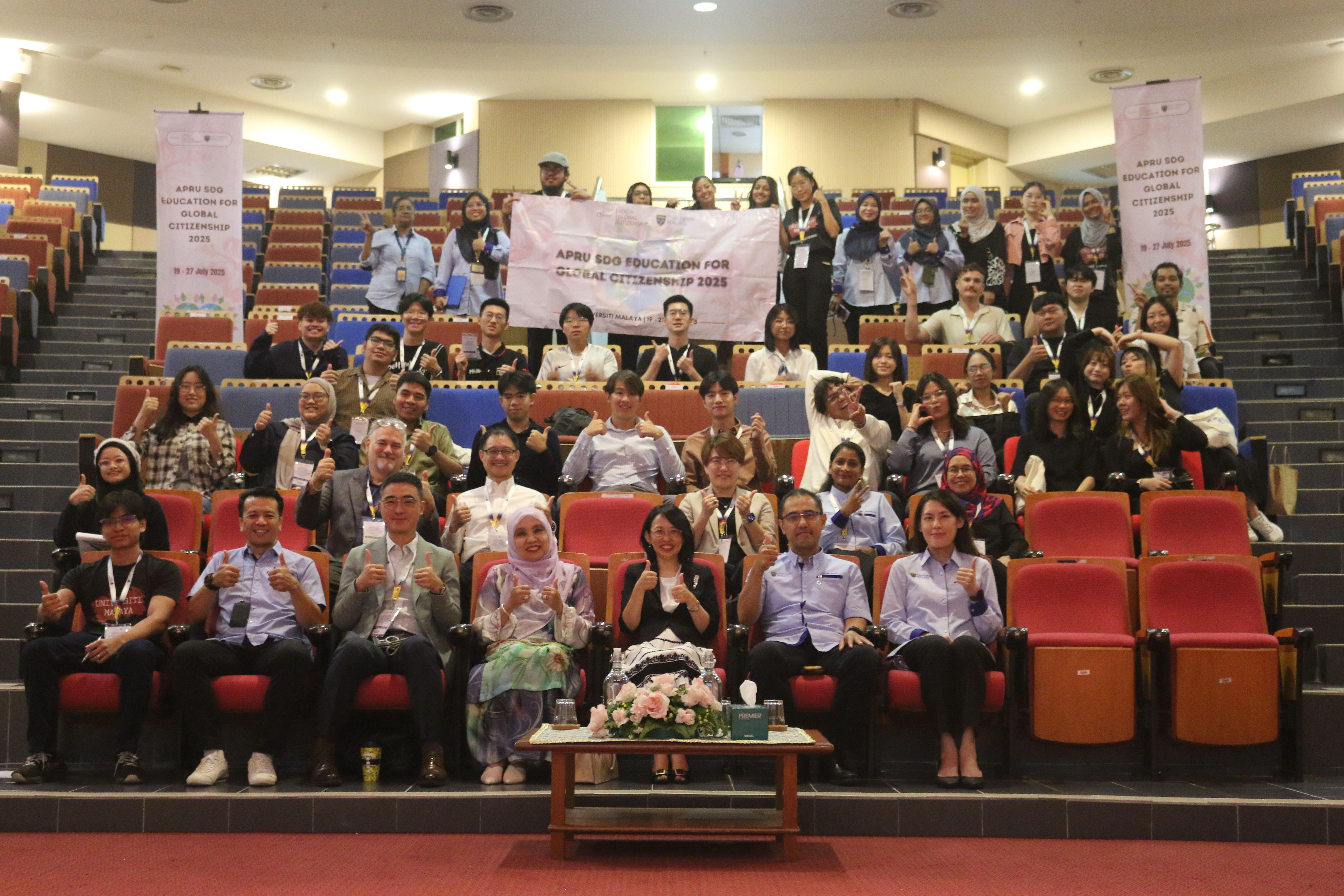The Tsinghua Global South Culture Immersion program, hosted by Universiti Malaya (UM), brought together bright minds from Tsinghua University and UM in an enriching cross-cultural exchange. Over the course of two weeks, students engaged in a series of academic, cultural, and experiential learning activities designed to deepen their understanding of Malaysia and the broader Global South.
The program kicked off with a warm welcoming session at the Faculty of Arts and Social Sciences, where participants were introduced to the objectives of the program and given a glimpse into Malaysian culture. This was followed by a series of interactive lectures and workshops led by faculty members from the Faculty of Languages and Linguistics (FLL), covering topics such as Malaysian history, art, cuisine, and linguistics.
Students participated in engaging sessions like “An Introduction to Malaysia’s Food & Art”, where they learned about traditional Malaysian dishes, their historical significance, and the vocabulary associated with local cuisine. Another highlight was the “An Introduction to Malaysia’s History & Culture” session, which explored the diverse ethnic backgrounds and festivals that define Malaysian society.
Beyond the classroom, students had the opportunity to experience Malaysia first-hand through guided excursions. One of the standout visits was to Bank Negara Malaysia Museum and Art Gallery, where participants explored the economic history of Malaysia, the role of the central bank, and the nation’s financial and monetary policies. This visit provided valuable insights into Malaysia’s economic landscape, complementing the students’ academic discussions on development in the Global South.
Another cultural immersion experience took place at Rimba Ilmu, UM’s own rainforest research facility. Here, students gained an appreciation for Malaysia’s rich biodiversity and sustainability efforts. This visit tied in well with the program’s overarching theme of understanding environmental and cultural sustainability in the region.
The students also embarked on a historical tour of Melaka, a UNESCO World Heritage City. They explored key historical sites such as Jonker Walk, the Laksamana Cheng Ho Museum, and the Melaka River, which illustrated the rich maritime and colonial history of Malaysia.
To foster a deeper cultural appreciation, students participated in traditional Malaysian dance workshops and interactive language activities. Another highlight was the batik painting and henna art workshop, which provided hands-on experience with traditional Malaysian craftsmanship.

As the program came to a close, students reflected on their experiences during a special closing session at Rebung, a well-known Malaysian restaurant that embodies the spirit of Malaysian hospitality. The event was a celebration of the friendships formed, knowledge gained, and the cultural bridges built during their time in Malaysia.
The Tsinghua Global South Culture Immersion program was more than just an academic exchange—it was an unforgettable journey of discovery, connection, and inspiration. Universiti Malaya is proud to have hosted such a meaningful initiative and looks forward to fostering more collaborations that promote cross-cultural learning and global engagement.

For more study abroad opportunities, visit UM Study Abroad.
A Look Back at APRU SDG4GC 2025 On-Site Programme in Universiti Malaya
.jpg)
From 19 to 27 July 2025, Universiti Malaya (UM) had the honour of hosting the on-site segment of the APRU SDG Education for Global Citizenship (SDG4GC) 2025 programme, welcoming over 30 students from 12 universities across the Asia-Pacific region. Held under the theme “Diversity and Inclusivity – Actions for Sustainability,” the programme brought together diverse young leaders to collaborate, exchange perspectives, and engage in hands-on activities that deepen understanding of the United Nations Sustainable Development Goals (SDGs).
A Week of Immersive Learning and Cross-Cultural Connection
The week-long programme was packed with thoughtfully curated activities that combined academic discussions, field visits, cultural immersion, and collaborative workshops. After a warm welcome and cultural day on 20 July, participants officially kicked off the academic portion with keynote speeches, workshops, and interactive sessions tackling themes such as inclusive communities, sustainable development, climate action, and responsible consumption.
Highlights included:
● A site visit to PichaEats, a Malaysian social enterprise, where students learned about innovative food redistribution and community empowerment models.
● Engagement with the Social Wellbeing Research Centre (SWRC) through interactive forums on how youth can contribute to SDG progress.
● A field trip to Glami Lemi Biotechnology Research Centre in Negeri Sembilan, where students explored real-life applications of SDG 13 (Climate Action) through agricultural innovation, sustainable livestock practices, and plant tissue culture.
● The UN Global Seminar on “Empowering Global Citizenship: Digital Transformation for Sustainable and Inclusive Development” held on the morning of 25 July, which provided a timely discussion on the intersection of digital transformation and SDG engagement.
.jpg)

Throughout the programme, students were grouped into multicultural teams, each led by dedicated UM student buddies. These groups engaged in reflective discussions and digital poster presentations, demonstrating their takeaways and project ideas rooted in the week’s experiences.
Student-Led Collaboration and Mentorship
Central to the on-site programme’s success were the UM student buddies and lead mentors, who facilitated group reflections, coordinated daily logistics, and provided peer-level guidance. Their efforts were instrumental in fostering a safe, inclusive, and dynamic learning environment.
Lead mentors from Universiti Malaya and partner universities played a pivotal role by guiding team-based reflections and mentoring discussions, ensuring academic depth and continuity throughout the learning journey.
A Heartfelt Closing
The programme concluded with a closing ceremony on the evening of 25 July, where students showcased traditional attire, shared personal reflections, and expressed gratitude for the friendships and knowledge formed. A city tour on the final day allowed students to explore Kuala Lumpur’s cultural and historical landmarks, including Batu Caves and Putrajaya, before their departure on 27 July.

Looking Ahead
The APRU SDG4GC programme at Universiti Malaya highlighted the power of regional partnerships and youth collaboration in advancing the SDGs. Through meaningful dialogue, interdisciplinary learning, and mutual respect, participants walked away with not only a deeper understanding of global citizenship but also a strong sense of responsibility to bring about sustainable change in their own communities.
As they return home, these young changemakers carry with them the warmth of Malaysia, the lessons of sustainability, and the bonds of friendship that transcend borders.
Last Update: 31/07/2025